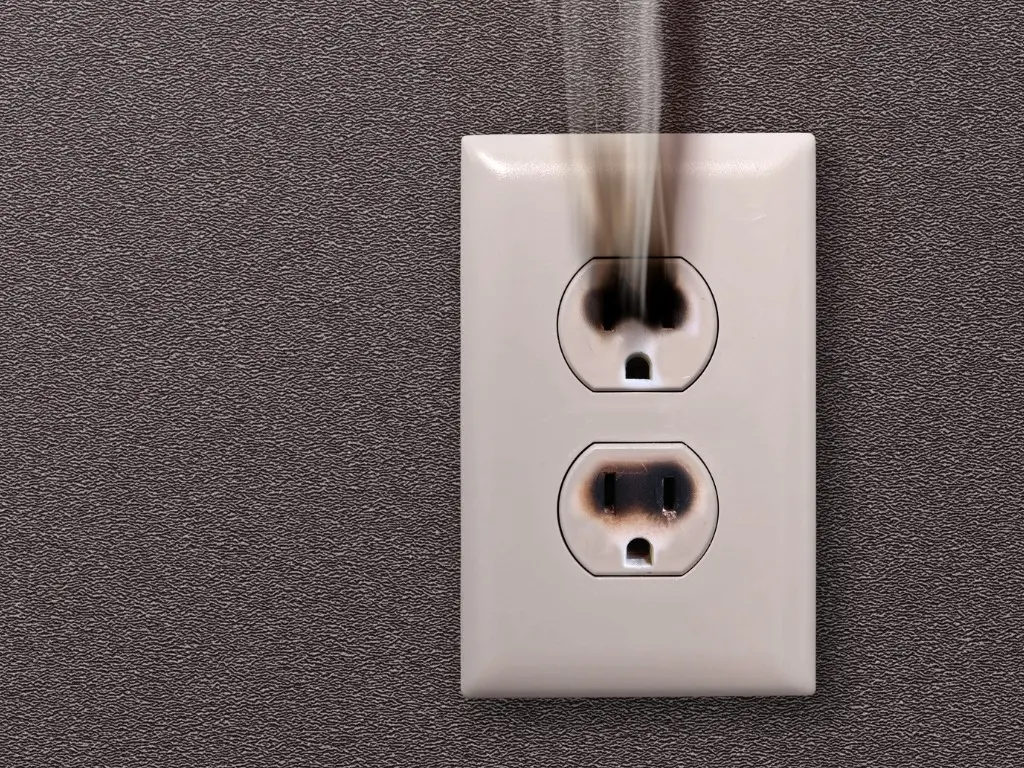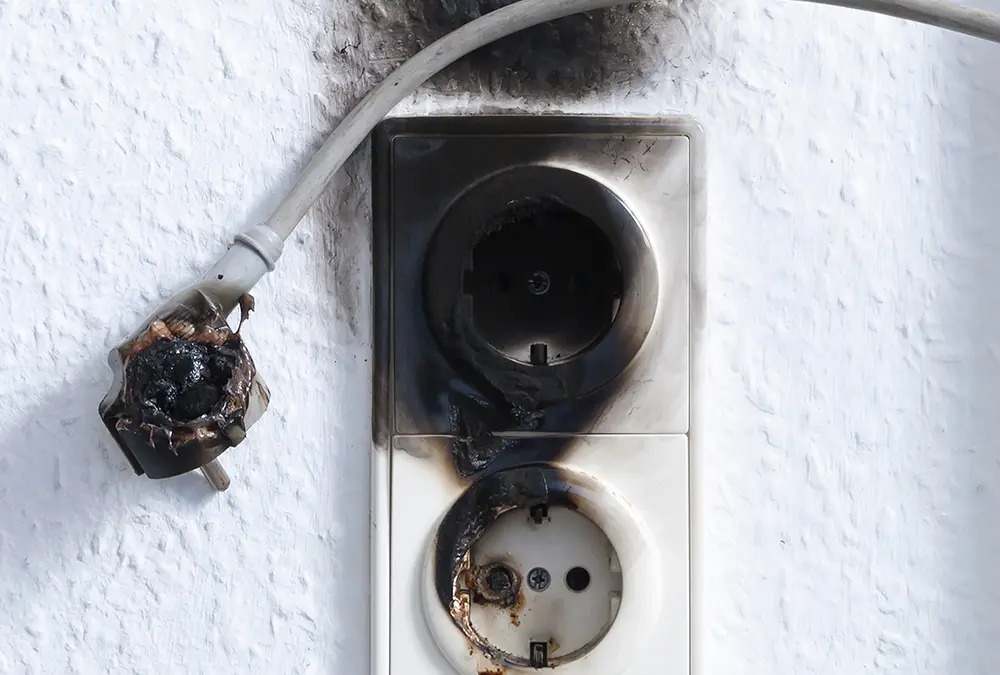Have you ever experienced the unsettling situation where your outlet suddenly pops and starts smoking? This can be a cause for concern and can even pose a safety hazard. Understanding why this happens is crucial for preventing electrical accidents and potential fire hazards. In this article, we will explore the reasons behind outlet popping and smoking and what you should do if you encounter this issue.
What does it mean when an outlet pops?
An outlet popping refers to a sudden noise or spark that occurs when an electrical current flows through it. This can happen due to various reasons, including:

- Overloading: One of the most common causes of outlet popping is overloading. When you plug in too many devices or appliances into a single outlet, it can exceed the outlet's capacity, leading to overheating and potential electrical shorts.
- Loose connections: Another reason for outlet popping is loose connections. Over time, the electrical connections within an outlet can become loose, causing arcing and sparking, which can result in the outlet popping and smoking.
- Short circuits: A short circuit occurs when a hot wire comes into contact with a neutral wire or a ground wire. This can cause a sudden surge of electricity, resulting in the outlet popping and smoking.
- Old or faulty wiring: Outdated or faulty wiring can also contribute to outlet popping. If the wiring is worn out or damaged, it can cause electrical arcing, leading to the popping and smoking of the outlet.
What should you do if your outlet pops and smokes?
If you notice your outlet popping and smoking, it is essential to take immediate action to prevent any further damage or potential hazards. Here are the steps you should follow:
- Turn off the power: The first and most crucial step is to turn off the power to the affected outlet. Locate the circuit breaker panel in your home and switch off the circuit that corresponds to the outlet.
- Inspect for damage: Once the power is off, carefully inspect the outlet for any visible signs of damage or charring. If you notice any, it is best to contact a licensed electrician to assess and repair the outlet.
- Do not use the outlet: Until the outlet has been inspected and repaired, avoid using it to prevent any further incidents or potential electrical hazards.
- Seek professional help: It is highly recommended to consult a professional electrician to investigate the cause of the outlet popping and smoking. They have the expertise to identify and fix any underlying electrical issues.
:
Q: Can an outlet popping and smoking cause a fire?
A: Yes, an outlet popping and smoking can potentially cause a fire. It is crucial to address this issue promptly to prevent any further risks.

Q: How can I prevent outlet popping and smoking?
A: To prevent outlet popping and smoking, avoid overloading outlets, regularly inspect and maintain your electrical connections, and upgrade any outdated or faulty wiring.
Q: Is it safe to repair an outlet myself?
A: It is not recommended to attempt to repair an outlet yourself, especially if you are not experienced in electrical work. It is best to leave it to a licensed electrician to ensure the safety and proper functioning of the outlet.
In conclusion
Outlet popping and smoking can be a cause for concern and should be addressed promptly. Understanding the reasons behind it, such as overloading, loose connections, short circuits, or faulty wiring, can help you prevent potential hazards. Remember to turn off the power, inspect for damage, avoid using the outlet, and seek professional help if you encounter this issue. By taking these necessary precautions, you can ensure the safety of your electrical system and minimize the risk of electrical accidents or fires.
If you want to know other articles similar to Why does my outlet pop & smoke? | prevent electrical accidents you can visit the Electrical safety category.


Related Articles